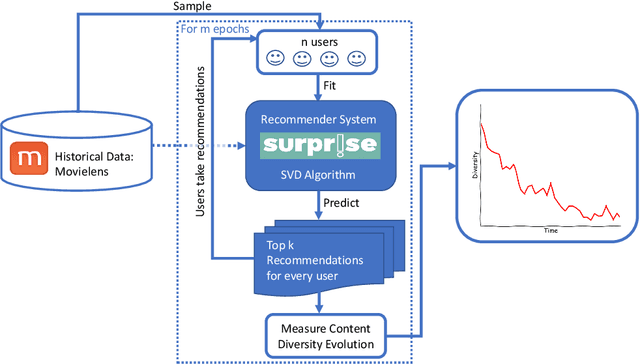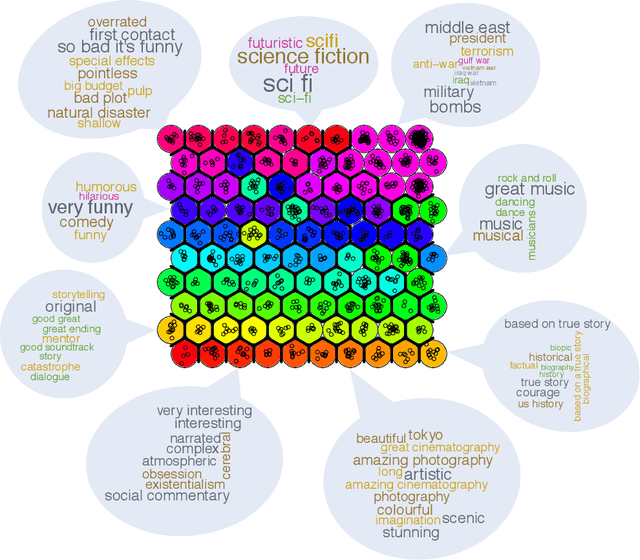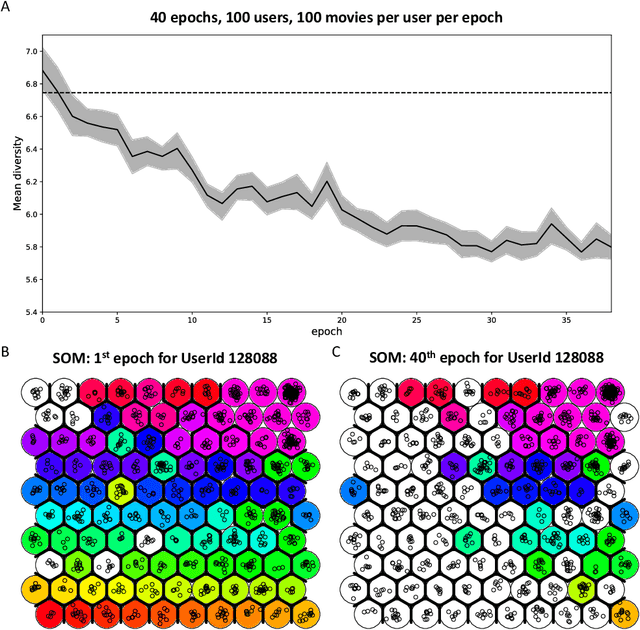Echo Chambers in Collaborative Filtering Based Recommendation Systems
Paper and Code
Nov 08, 2020


Recommendation systems underpin the serving of nearly all online content in the modern age. From Youtube and Netflix recommendations, to Facebook feeds and Google searches, these systems are designed to filter content to the predicted preferences of users. Recently, these systems have faced growing criticism with respect to their impact on content diversity, social polarization, and the health of public discourse. In this work we simulate the recommendations given by collaborative filtering algorithms on users in the MovieLens data set. We find that prolonged exposure to system-generated recommendations substantially decreases content diversity, moving individual users into "echo-chambers" characterized by a narrow range of content. Furthermore, our work suggests that once these echo-chambers have been established, it is difficult for an individual user to break out by manipulating solely their own rating vector.
 Add to Chrome
Add to Chrome Add to Firefox
Add to Firefox Add to Edge
Add to Edge